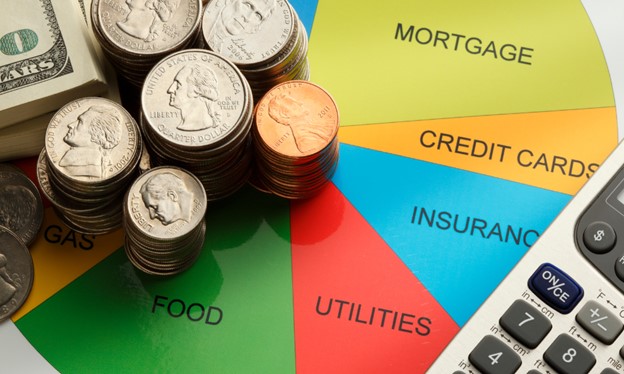How Do You Make A Household Budget
 Creating a household budget can be a helpful way to track your spending and ensure you are meeting your financial goals. You will need to examine your fixed expenses that are the same each month, such as rent or car payments and your variable expenses that change each month, such as groceries or entertainment. Dealing with debt can be challenging but incorporating it into your budgeting strategy can help you regain control of your finances. Here are some steps you can take to effectively manage your debt while budgeting:
Creating a household budget can be a helpful way to track your spending and ensure you are meeting your financial goals. You will need to examine your fixed expenses that are the same each month, such as rent or car payments and your variable expenses that change each month, such as groceries or entertainment. Dealing with debt can be challenging but incorporating it into your budgeting strategy can help you regain control of your finances. Here are some steps you can take to effectively manage your debt while budgeting:
Assess your debt: Begin by gathering all your debt information, including outstanding balances, interest rates, and minimum monthly payments. List your debts in order of priority, such as high-interest debts or those with approaching due dates.
Create a budget: Develop a comprehensive budget that covers all your income and expenses. Categorize your expenses into essential (e.g., housing, utilities, groceries) and non-essential (e.g., entertainment, dining out) categories. Make sure to allocate funds for debt repayment.
Prioritize debt payments: Allocate a portion of your budget specifically for debt repayment. While making minimum payments on all debts, focus on paying extra towards high-interest debts to reduce their impact over time. This strategy is known as the debt avalanche method. Alternatively, you can prioritize the debt with the lowest balance first (debt snowball method) for psychological motivation.
Reduce discretionary spending: Look for areas where you can cut back on non-essential expenses. This might involve reducing eating out, entertainment costs, or finding more affordable alternatives for certain services. Direct the savings towards debt repayment.
Negotiate with creditors: If you’re struggling to meet your debt obligations, contact your creditors to discuss possible alternatives. They may be willing to offer reduced interest rates, extended repayment terms, or debt consolidation options. Exploring these options can help make your debt more manageable.
Consider debt consolidation or refinancing: If you have multiple debts with high-interest rates, consolidating them into a single loan or refinancing them with a lower interest rate may be beneficial. This approach simplifies your payments and can potentially save money on interest charges.
Build an emergency fund: While dealing with debt, it’s crucial to simultaneously build an emergency fund. Having some savings set aside can prevent you from relying on credit cards or loans in case of unexpected expenses. Start with small, regular contributions until you reach your desired emergency fund amount.
Remember, managing debt takes time and discipline. Stay committed to your budgeting efforts and regularly review your progress. Over time, as you reduce your debt, you’ll regain financial stability and move closer to achieving your financial goals. It may take some time to find the right balance, but creating a household budget can be an effective way to manage your finances and achieve your financial goals.


 For most people, the mortgage payment is the biggest monthly expense. Whether you’re facing retirement or still working, it would be nice to be free of this debt. Although you probably can’t pay it off in one lump sum, it is possible to pay off your mortgage sooner than expected.
For most people, the mortgage payment is the biggest monthly expense. Whether you’re facing retirement or still working, it would be nice to be free of this debt. Although you probably can’t pay it off in one lump sum, it is possible to pay off your mortgage sooner than expected.